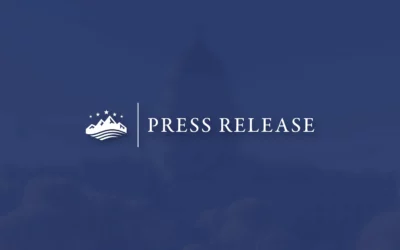
Written by Sutherland Institute
April 26, 2019
After Sutherland Institute’s advance screening of The Pursuit, president & CEO Rick B. Larsen released the following:
The message of Arthur Brooks’ new documentary, The Pursuit,is innovative and new, but also traditional – even familiar. The artistic vision behind the film illuminates personal stories of success made possible by a free-market economic system – a model that has lifted more than 2 billion lives out of poverty.
Earlier in the day, before Sutherland’s screening of his film, Brooks called upon the graduating class at BYU to take their faith, their principles – and their propensity to love and teach – into the world with a mission-like zeal.
What does a film about free markets have to do with a message about treating others with love and respect? More than you may expect.
Both have to do with human dignity, with how we value each other. The very ability to discuss topics like the dignity of work and compassion for one another is lost in today’s climate of contempt.
Brooks’ call is for a total sea change in tone and in temperament when it comes to how we treat one another. It harks back to President Abraham Lincoln’s call to our better angels – but Brooks makes this call in a time when no one talks much about angels.
At the conclusion of both the commencement and the film screening, filled with this new – or perhaps renewed – sense of hope, people wonder, “Now what?” How can we keep the feeling alive?
The answer to “now what?” is contained in his latest book, Love Your Enemies. The answer is so simple and yet so challenging. And it cannot be viewed as a strategy – it must be far more genuine than that.
Brooks asks each of us, can we bravely and humbly regain the ability to – rather than avoid those with whom we disagree – seek them out? Can we listen first and then explain respectfully, without criticism, what concepts like capitalism and conservatism really look like? And can we do so in a manner that does not abandon or weaken our principles and values, but rather displays and demonstrates the better angels contained therein?
Just as socialism is currently being confused with compassion – with no discussion about what it means in terms of real governance – so too are conservatism and capitalism confused with corporate excess and the tone of one administration or political agenda.
Were we to talk – really explore these topics – with respect and love, we would learn that socialism has a much broader history, with implications that go beyond just free health care and college tuition. And capitalism is not defined by greed, classism, or any one administration or party.
We must learn to seek out those with whom we disagree and have conversations with them without resorting to false dichotomies, personal attacks and intentionally omitted facts. It feels strangely unnatural today that we need to remind ourselves that these important conversations should not be about winning – they should be about understanding.
Why this approach seems frightening or absurd to some is obvious from a political view, but from a community view – and compared to the dangerous path we are already on socially – I am not sure why we would be the least bit hesitant. When we consider the consequences that contempt and anger are having upon the fabric of our communities and the nature of our political discourse, it seems well worth whatever risk there may be in having conversations and seeking to understand.
We can and will overcome division and contempt if each of us is willing to be the kind of person Brooks encourages and personifies: that person who will wade in, committed to both listen and teach; who maintains a view of human dignity – who sees potential in each human being – and will not cease to disagree, but learn to disagree better.
Utah naturally embraces these values. But we need to be more careful – and be aware that national trends are already eroding local communities.
We can do better. Hundreds of students, faculty, community leaders and policymakers believed this by Thursday evening. And I predict that after having slept on it, they still believe it today.
More Insights
Read More
Trump’s Executive Orders: bold action, or unconstitutional overreach?
Executive orders that carry out existing law or direct the work of executive branch agencies are appropriate uses of presidential power. Those that coopt the power of the other branches are not.
In fight between Maryland school district and parental rights, U.S. Supreme Court should protect religious freedom
The court should now clarify that depriving parents of a widely recognized right is the type of burden the Constitution is intended to prevent.
Sutherland releases new report on the value of religion in education
Sutherland Institute released a new research publication on the social value of religion in education.


